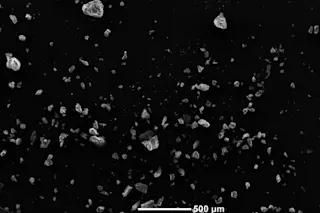Forty-two years after Yuri Gagarin orbited Earth, beating the Americans, China has claimed the bronze medal as the third country to put a human in orbit. On October 15 the Shenzhou 5 (“divine vessel”) capsule blasted off from the Gobi Desert atop a Long March 2F rocket, circled Earth 14 times, and landed in Inner Mongolia. Lieutenant Colonel Yang Liwei, the 38-year-old astronaut, or taikonaut, emerged a national hero.
The Shenzhou 5 is modeled on the Russian Soyuz spacecraft, but Chinese engineers have made substantial improvements. “They didn’t just put it on the blackboard, do a few dry runs, and kick it in the air,” says James Oberg, a spaceflight consultant who spent 22 years at NASA mission control. The Shenzhou has adjustable, electricity-generating solar panels, giving it the potential for weeklong stays in space. And its escape rockets—which allow the capsule to break free in case of a launch ...














